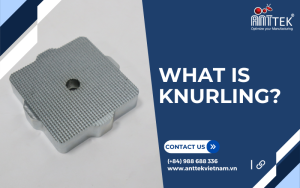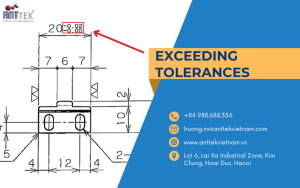Processing components for export with CO and CQ
In the field of international trade, handling export documents and records is crucial to ensure transactions run smoothly and comply with various regulations. The two main elements in this process are the Certificate of Origin (CO) and the Certificate of Quality (CQ). These documents play a vital role in verifying the origin and quality of exported goods. This article delves into the importance of CO and CQ, their role in the export process, and best practices for managing these certifications.
Requirements for processing export components with CO and CQ
Certificate of Origin (CO) Requirements
- Manufacturer Information: Details of the manufacturer, including name, address, and contact information. Proof that the manufacturing process took place in the stated country.
- Product Information: Detailed description of the goods, including type, model, and specifications. Harmonized System (HS) code for the products.
- Commercial Documentation: Commercial invoice showing the value of the goods. Packing list with details of the packaging and contents.
- Exporter’s Declaration: A declaration by the exporter stating the origin of the goods. Signed affidavit confirming the accuracy of the information provided.
Certificate of Quality (CQ) Requirements
- Quality Standards Compliance: Compliance with international quality standards such as ISO, ANSI, or other relevant standards specific to the industry. Detailed product specifications and quality requirements.
- Testing and Inspection: Conduct thorough testing and quality inspection of the components. Use certified testing laboratories or third-party inspection agencies.
- Quality Management System: Implement a robust quality management system (QMS) within the manufacturing process. Maintain records of quality control processes, inspections, and test results.
- Documentation: Detailed product description, including specifications and quality parameters. Test reports and inspection certificates from recognized bodies.
Step-by-Step Guide to Exporting Mechanical Processing Components
Understand Export Regulations
- Research Regulations: Start by researching the export regulations of your home country and the importing country’s requirements. Look for specific regulations regarding mechanical processing components.
- Compliance: Ensure your products comply with all relevant international standards and regulations, such as ISO standards for quality and safety.
- Trade Agreements: Check for any trade agreements between your country and the importing country that may affect tariffs, duties, and regulations.
Obtain Necessary Certifications
Certificate of Origin (CO):
- Identify Issuing Authority: Typically, local Chambers of Commerce or trade associations issue COs.
- Gather Documentation: Prepare documents such as commercial invoices, packing lists, and manufacturing details.
- Submit Application: Fill out the application form provided by the issuing authority and submit it along with the required documents.
- Approval and Payment: Pay the necessary fees and await approval. Once approved, you’ll receive the CO.
Certificate of Quality (CQ):
- Select Certification Body: Choose a recognized certification body or third-party inspection agency.
- Prepare Product Information: Provide detailed product specifications, quality standards, and manufacturing processes.
- Inspection and Testing: The certification body will conduct inspections and tests to ensure compliance with quality standards. Receive Certification: If the product meets the standards, the certification body will issue the CQ.
Prepare Export Documentation
- Commercial Invoice: A detailed invoice including product descriptions, quantities, unit prices, total value, and terms of sale.
- Packing List: Detailed list of contents, packaging details, weight, and dimensions of each package.
- Bill of Lading (B/L) or Airway Bill (AWB): Shipping documents provided by the carrier.
- Export License: Some countries require an export license for specific goods.
- Insurance Certificate: Proof of insurance coverage for the shipment. Export Declaration: Required by customs to declare the goods being exported.
Choose a Freight Forwarder
- Research and Select: Choose a reliable freight forwarder with experience in handling mechanical processing components.
- Provide Documentation: Give your freight forwarder all necessary documentation and details about your shipment.
- Discuss Shipping Options: Discuss various shipping options, routes, and costs to find the best solution for your needs.
- Customs Clearance Support: Ensure the freight forwarder can assist with customs clearance procedures in both the exporting and importing countries.
Customs Clearance
- Prepare for Inspection: Ensure all documentation is accurate and complete to avoid delays during customs inspection.
- Customs Broker: Consider hiring a customs broker to handle the complexities of customs clearance. Duties and Taxes: Be prepared to pay any applicable duties, taxes, and fees.
Shipping and Delivery
- Track Shipment: Use tracking systems provided by your freight forwarder or carrier to monitor the progress of your shipment.
- Communicate with Buyer: Keep the buyer informed about the shipment status and estimated delivery date.
- Resolve Issues: Be prepared to address any issues that arise during shipping, such as delays or damage.
Additional Tips for Successful Exporting
- Stay Informed: Continuously monitor changes in export regulations and standards.
- Quality Control: Implement a robust quality control system to maintain product quality and meet international standards.
- Relationship Building: Foster strong relationships with buyers, freight forwarders, and certification bodies.
- Use Technology: Utilize export management software for efficient documentation and compliance tracking.
- Risk Management: Identify potential risks and have contingency plans in place to handle unexpected situations.
Anttek Vietnam specializes in processing export components with CO and CQ certifications

We take pride in our commitment to producing precision mechanical components of high quality and clear origin. Our products consistently meet rigorous international standards such as ISO and JIS, ensuring peace of mind for our customers.
With years of industry experience, Anttek Vietnam is steadily establishing itself in the global market. We continuously enhance product quality and service standards to meet the demands of discerning markets in Japan, Australia, America, Israel, and beyond. Customer trust and satisfaction drive our daily efforts toward ongoing development and improvement
Please contact us:
- Factory: Lot 6, Lai Xa Industrial Zone, Kim Chung Commune, Hoai Duc District, Hanoi City, Vietnam
- Hotline: +84. 988. 688.336
- Email: truong.nx@anttekvietnam.com
- Website: https://anttekvietnam.vn

















